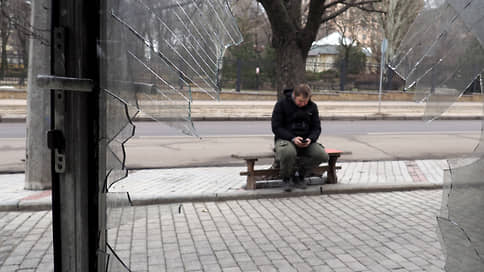LPR operators are offered “outsourcing” until the end of 2024
[ad_1]

The Ministry of Digital Transformation may postpone the introduction of traffic storage systems (SDS), which are part of the systems of operational search activities (SORM), for LPR operators until the end of 2024. Companies are offered to rent storage systems from an operator that will offer SORM services to providers in the region. Miranda Media, in particular, is already ready to do this, but local providers do not know the final cost of the service. Experts fear that the networks of one operator will not be able to withstand the traffic of dozens of small providers operating in the region, and in order to increase capacity, it will have to raise communication prices.
The Ministry of Digital Transformation told Kommersant that the introduction of traffic storage systems (DSS), the most costly part of launching a system of operational search activities (SORM), may be delayed for telecom operators in the LPR until the end of 2024. Earlier, the Ministry of Digital Transformation stated that operators in the new territories would be allowed not to install their own SORM systems: “They can conclude an agreement with the operator to whose network they are connected to provide SORM services for its traffic.” Thus, Miranda-Media (19.99% of Rostelecom) has already begun offering SORM services to providers in the LPR (see Kommersant of March 24).
The Ministry of Digital Transformation specified that local operators will be able to agree on the use of storage systems on the same principle: “The cost of such services will be determined by the superior operator. For small operators, this is a serious expense item.” Subsidies for the implementation of SORM and storage systems to operators in the DPR, LPR, Kherson and Zaporozhye regions, the ministry added, are not provided.
Lugakom (brand “Mobile Communication Systems”) is currently operating in the LPR. At the end of May, it became known that +7Telecom, a structure of the Crimean operator K Telecom, had received permission to enter the republic (see Kommersant of May 24). There are also about 40 small providers operating in the region, said Dmitry Galushko, CEO of the consulting company OrderCom. In the ISS, “Kommersant” said that the plans for the implementation of SORM are agreed and signed between the operator and the FSB department. The operator itself “does not plan to use or provide an outsourcing service.”
In this situation, the problem is not with the timing of the implementation of storage systems, but with financing, emphasizes the interlocutor of Kommersant in the telecommunications market of the LPR: “Storage is the most expensive part of SORM. A meeting was held with the participation of Luhansk telecom operators and the FSB, at which we were informed that a technical proposal for outsourcing services was being prepared, a system was being developed to connect it, and all the necessary equipment had been purchased, but the final price was not indicated.
The Kommersant source explained that storage systems are part of the SORM equipment, and the standards that require large capacities are established by the Yarovaya Law. According to it, operators must store telephone conversations, text messages, images, sounds, video recordings and other electronic messages of users. Operators are required to store conversations and SMS messages for six months, messages transmitted via the Internet – 30 days.
An interlocutor close to Luhansk telecom operators claims that local companies do not have enough financial resources to connect SORM and storage systems: “We cannot find $70,000 or more for the purchase of equipment in a year and a half, while the price of the infrastructure itself may rise.” The cost of SORM equipment is 2–7.5 million rubles. depending on the provided data transfer rate, noted in Mintsifra. Now, for the absence of SORM on communication networks, operators face a fine of 0.001–0.003% of annual revenue for the first violation and 0.01–0.03% for the second.
The provision of outsourcing services can increase the traffic of the operator providing them by 15% per year, Dmitry Galushko believes: “One operator, even a large one, will not have enough capacity to support more than 40 companies. As a result, in order to increase the amount of capacity, the company will start to raise Internet tariffs in various ways.” According to him, now the average cost of tariffs in the LPR is about 300 rubles, but with the introduction of SORM, it will gradually increase to 500 rubles, which is “unacceptable for the destroyed territories.”
[ad_2]
Source link





